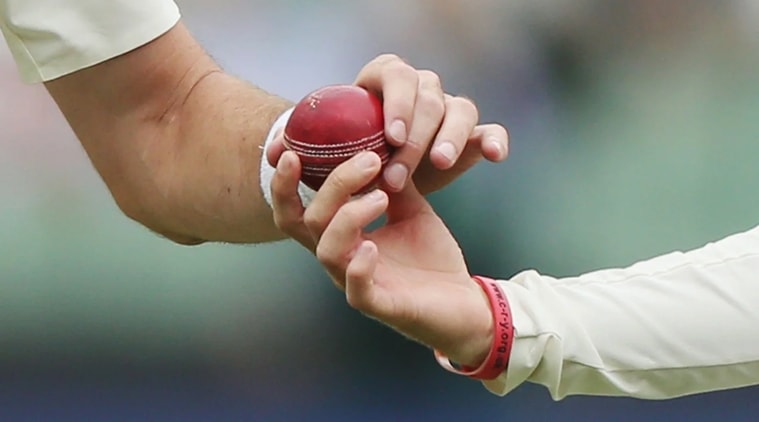 Players would be barred from using saliva to shine the ball. (Source: File Photo)
Players would be barred from using saliva to shine the ball. (Source: File Photo)
On Monday, the Also, non-neutral umpires made a coronavirus-forced return for all international matches.
Saliva ban
Henceforth, players would be barred from using saliva to shine the ball. The decision has been taken today, as the Kumble-led Cricket Committee had a meeting via conference call that addressed issues like maintaining the condition of the match ball.
Reason
The ICC says changes to regulations have been brought in to “to mitigate the risks posed by the COVID-19 virus and protect the safety of players and match officials”. With regards to the saliva ban, the Cricket Committee acted on ICC Medical Advisory Committee chair Dr. Peter Harcourt’s advice. The regulation to ban saliva to shine the ball has been put in place because spitting on the ball elevates the risk of virus transmission. The World Health Organization (WHO) advisory says: “COVID-19 virus is primarily transmitted between people through respiratory droplets and contact routes.” The ICC Cricket Committee unanimously agreed to enforce the ban.
Sweat is allowed
Players can use sweat to polish the ball. “The Committee also noted the medical advice that it is highly unlikely that the virus can be transmitted through sweat and saw no need to prohibit the use of sweat to polish the ball whilst recommending that enhanced hygiene measures are implemented on and around the playing field,” says the ICC release. This is in accordance with the guidelines issued by WHO and the Johns Hopkins University. Both omit sweat as a transmitting agent of the virus.
Non-neutral umpires and match referees
Since 2002, two neutral umpires from the ICC Elite Panel conducted the on-field proceedings in Tests. Third umpire, too, was an ICC appointee, while the fourth umpire came from the host cricket board. For ODIs, one on-field umpire and the third umpire were from the ICC panel, while for T20 internationals, all four umpires came from the host board. The ICC appointed neutral match referees across formats. Following the regulation change today, international matches can go ahead with all non-neutral match officials. For example, if the West Indies tour England in July for a three-Test series, the matches will be officiated by local umpires. The ICC, though, says this is a short-term measure because of the COVID-19 crisis.
Reason
The Cricket Committee has recommended the change keeping an eye on international travel restrictions, closed borders and mandatory quarantine periods. The ICC will continue to appoint match officials from “local Elite and International Panel referees and umpires”. Countries with no Elite Panel match officials will see “the best local International Panel match officials” are appointed.
Additional review
As a back-up, the Cricket Committee has recommended that “an additional DRS review per team per innings is introduced” across formats as an interim measure. All recommendations of the Cricket Committee will be presented before the ICC Chief Executives’ Committee in early June for approval.
“We are living through extraordinary times and the recommendations the Committee have made today are interim measures to enable us to safely resume cricket in a way that preserves the essence of our game whilst protecting everyone involved,” Kumble said.